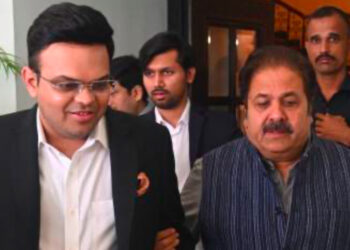Rohit Sharma’s situation is indeed a complex one. Based on his recent performances and leadership, particularly his command during the Melbourne Test against Australia, it is clear that he still holds a significant place in the Indian cricket team, both in terms of his batting and leadership. His ability to manage the team under pressure, even when his personal form may not be at its best, speaks volumes about his value to the squad.
From one perspective, Rohit should be the one to decide when it’s time for him to retire. He’s earned that privilege through years of exceptional service to Indian cricket. Former Indian captain Mohammad Azharuddin’s stance on Rohit’s retirement talks is quite simple. He believes in the right of a big player like Rohit in deciding when to retire, rather than having that decision influenced by selectors or external voices. “Let him decide when he wants to retire, why should anyone tell him what he should be doing?” Azharuddin asked during an interaction with CricBlogger.
Azharuddin’s view aligns with the notion that a player, especially one with such an illustrious career, should have the agency to determine when it’s the right time for him to step down, based on his physical condition, performance, and personal desires. “Players like Rohit, who have achieved so much, usually have a strong sense of when their time is up, and it’s important to respect that. Also, retirement isn’t just about performance — it’s about mental and physical readiness, and no one knows that better than the player themselves,” Azharuddin said.
However, selectors do play a role in assessing the broader picture of a team’s future, and this includes whether a player’s form or fitness is holding back the team’s overall progress. If there’s a strong case for replacing him with a younger player to build for the future, selectors might consider guiding the player to retirement, especially if his performances dip significantly over time. But in Rohit’s case, the selectors seem to still trust his leadership, which is why he is still captaining the team and playing key roles despite the odd lean patch in batting. “I don’t know what the selectors are thinking but I am sure they must have a plan in place,” Azharuddin said.
In this case, the ideal scenario would be for both the player and the selectors to have a discussion about the future. If Rohit is still effective as a leader and contributing with the bat when needed, there’s no immediate need for him to retire. However, if the selectors feel that his performances no longer justify his place in the side, they might have to step in and suggest a transition, while respecting his dignity and experience.
“It should be a mutual decision. Rohit, given his experience and achievements, deserves the final say, but the selectors’ perspective should also be taken into account, especially in a team sport where long-term planning is crucial,” Azharuddin suggested.
But the former skipper wasn’t happy wit the way the Indians stopped attacking the Australia lower-middle order after pushing over the top-order in no time. “If you want to win a Test match, you have to attack more. There is no way one should be defensive, which the Indian camp was on Day Four of the Melbourne Test,” Azharuddin said while adding that the Indian fielding could have been better in the Australian second innings.

















